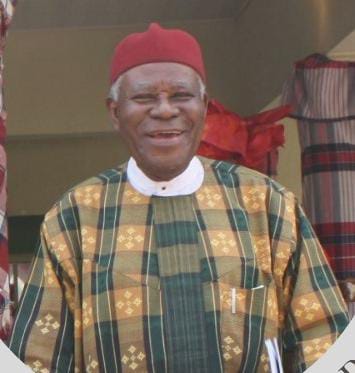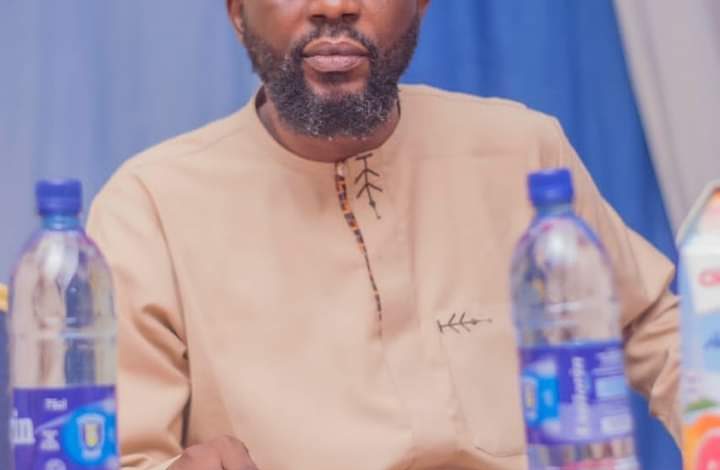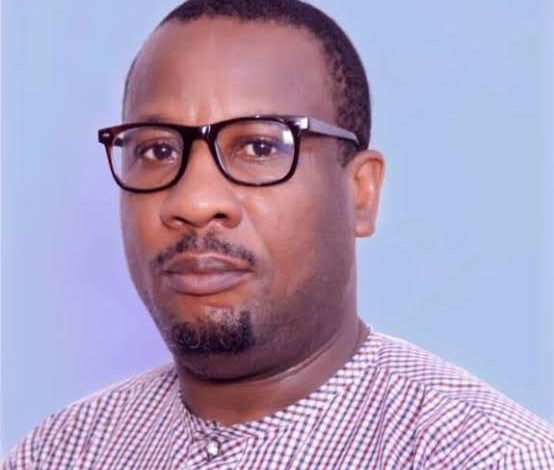KUK: remembrance of things past

By Uduma Kalu
HE was our Nelson Mandela. Everybody knew Mandela would die. But the fear that loomed in the mind of many was what would happen to racially ravaged South Africa after his death? South Africa is still living with this fear. When Nnamdi Azikiwe died, Ndigbo were left with a big political vacuum which even Chief Emeka Odumegwu Ojukwu could not fill. Such is the death of Dr. Kalu Uke Kalu to the people of Isiugwu Ohafia who was many things in one to them
One of the many fears in Isiugwu Ohafia today is the fate of the Isiugwu Ebem Ohafia road asphalting project Senator Orji Uzor Kalu attracted to our town. It is said that the senator is doing the road after his failed promise to Dr. Kalu Uke Kalu to build it when he was governor of Abia state. Now that Kalu Uke is dead, will Orji Kalu complete the road? What about the loan facilities, gifts to churches, the underprivileged, the schools, social reliefs, etc? Will the benefits continue? Kalu Uke was a key to many doors for our people. Will those doors still open for us now that he is dead? The fears are real.
Kalu Uke was such a great man that he was in the songs very early in the day. The music icon, Paulson Kalu, sang of him first…in the 1970s, in those strange lyrics, strange spirits call one another… in strange metaphors… Kalu Uke Kalu, one that should have been birthed as two but came as one. He was two in one person. I would hear such metaphor again later, and that was in the eulogy for Chinua Achebe, the eminent novelist’s traditional title of Ugo na Abuo, by his son, Ike, in 2013. Ugo na Abuo means two eagles seen together. It’s a rare thing to see one eagle. It’s strange to see two together. In a way, both Kalu and Achebe came from the same strange land where giants are made.
Shakespeare calls them comets…those balled stars that shoot forth from the skies. They announce the birth of princes. Princes are not of this place. They come from strange places. Shakespeare says comets are from heaven where princes are made. At their deaths, they burst forth from there, in the nights, with bolstered shreds of stars. Princes are stars in heaven. Their fall is a commencement of stars of heaven bursting brightly across the skies.
In the Ohafia Igbo of Abia state, it’s called ezizi, those stars that shoot forth from the skies to announce the death of great sons of the land. Princes. Ezizi, a pillar of stars, like fireball, or fireworks, shooting, sometimes, lazily, sometimes bullet-like, with a tail of stars scattering about. They point to a certain direction in their glide to the home of the departing prince of the land. Ezizi, the comet of Shakespeare’s princes. They are strange things for strange men. Ezizi. They came for the strange one, the prince of Ohafia earlier than that October 23, 2023 night. No, they came a week earlier, and continued even after. Till that night, the 23rd of October when they finally recalled him.

Kalu Uke Kalu
I started hearing about the strange one in the 1970s Isiugwu Ohafia of my youth. Then, when our parents left us for the farms, and kidnappers groped the land, we would, in the company of kids like me, hide in homes and build sand homes, play hide and seek, sing and tell stories in the afternoon. We had two types of stories we told. Oti were tortoise stories and such like told after night meals. They were not real or true. They were mainly for morality. Kids were meant to learn such tales for their moral growth.
Ububuo were histories we retold from received adults. They told of legends of Ohafia and their exploits, their history, warfare, greatness in all fields. While tortoise tales were full of songs and intrigues, the legends were about lived personalities that not only hoisted Ohafia greatness significantly but defended the homeland in times of necessity or adversity. They were the heroes of the land. And they were revered. It was from these stories of the legends that the name Kalu Uke first dropped. He was spoken of like those strange beings of ancient Igbo who were fair and from the distant riverine. Those men were no more. They had morphed with the black people of the present. But Kalu Uke was their descendant.
This story was boosted, no doubt, by the fact that Kalu Uke was an exceptional young man, one of the most intelligent, who though from impoverished background, braced the odds to graduate from the prestigious Hope Waddle College, Calabar, at a time many in the town were learning to stand. Kalu Uke was among the earliest beneficiaries of the Isiugwu Ohafia scholarship fund. Other students and workers considered exceptional also benefited from the programme. But Kalu was the one that people easily remember. Because he went to England. He got a degree or two. And he returned with a white woman as wife, something strange. And he was an elite, joining the new wave of the Nigerian elite force taking over the high echelon of the civil service being vacated by Europeans.
Kalu Uke, being the only person from Isiugwu Ohafia, indeed, one of the few in Ohafia, alongside the late Prof. Eni Njoku, Prof. Kalu Ezera, Prof. U. U. Uche, Justice Kalu Anya, Prof. Eme Awa, Dr. Kalu Uka, Justice A.K. Uche, etc, was the people’s eyes and representative in those places affairs of renowned were discussed. Kalu Uke was not just the eyes and ears of the people, he represented their well being, their hopes and aspirations. He was their ladder, their stepping stone to greatness to the new found land where the ways of the white man had taken over.
He was not only part of this new phenomenon, Kalu Uke was viewed as being in the caucuses of what made the new society tick. His position to the people could easily be gleaned from the words Oduche’s father, Ezeulu, gave to him as reason for sending him to the white man’s school and religion in Chinua Achebe’s Arrow of God He would be his ears and eyes there, and also return whatever good things there were in it for the people.
The Isiugwu Ohafia people were therefore not different from other Igbo communities that sent their brilliant young ones to school in those halcyon days of leaps and bounds with frugal resources powered by the palm produce and stones. As noted by Achebe in No Longer at Ease, the community saw their elite son as one to bring the goodies home to them by hook or crook. The bad things were to return to the owners of the land. Pressures were much on the new elites. Some succumbed to the temptations of pleasing the home folks and their expectations. Some, like Kalu, didn’t succumb. And they became role models for many. Some did bring some goodies to the homeland, one being Mr. Mba Kalu Mba, former Private Secretary to the Premier of Eastern Region, Dr. Michael Okpara. Mba is reputed to have helped to construct the Bailey bridge across the Uduma river bridge in Isiugwu Ohafia.
The legend of Kalu competed with the legend of Nnamdi Azikiwe, the nationalist and president of Independent and Republic of Nigeria. Zik, as he was simply called, was said to hold the key to the river Niger where he communed with the water beings. He could let loose the river if he wanted. He actually held the key to Nigeria. Zik could become anything he chose… man, woman, bird, stick, etc. He could speak better English than even the owners of the language. Zik would confound his white opponents with a mixture of both Igbo and English languages.
For example, Zik was said to have answered the British officials who said if he could speak any English word not found in the dictionary, he would be granted Nigeria’s independence. Zik had said, ‘agbogho biarism without ikom abiarism cannot make nwatarism‘. The British were confounded. They racked through their heads without understanding. They searched through the dictionary. They couldn’t find the words. They were left with no option than to grant Zik Nigeria’s independence.
Such was the legend of Zik. For Kalu, one of the stories was that even if money, both notes and coins, were as big as a storey building, Kalu would know the amount by simply placing his hands on it. Kalu had studied accountancy in the university. The only way the people could understand what an accountant meant was that it was a person that could count money, no matter the amount. We believed the story; after all, Kalu was a strange one who went to the land of excellence, England, to study in the university, the end of education when many could hardly pass elementary six.
Kalu Uke could also speak English better than the white man. White people spoke through their noses. But Kalu spoke better that he even returned to Nigeria with a white wife. Does she eat our food? Does she speak Ohafia? Does she cope with our poor surroundings? Ah, Kalu Uke told her he was from a poor background. That his parents lived in thatched huts. The white woman said she would be his wife. Kalu told her he was being sponsored by his community. She told her father who paid off the loan. The wife returned with Kalu and had been of great support and assistance to Isiugwu Ohafia, the stories went.
Some had heard her say ka, the greeting of the people. She was happy. She didn’t mind the poor homes and foods of our people. She had joined in the age grade, Adinti, of her husband, too. Age grades are important instrument of development in our community.
Every home wanted to have a Kalu Uke in their homes. We called him Kalu Uke, not Papa David, his first son. Not sir, as city people then would call their elders. Not KUK, as his city colleagues, called him. Not daddy, as is the case today. No, he was simply Kalu Uke.
We didn’t know David. We knew he had children…David and Paul, Uzunma and Orie. But we didn’t know them. But one day, we heard Kalu Uke brought his first son, David home to be initiated into the secret male rites of passage…the Obuon. The young lad was scared, even though some of the tasks were waived or softened for him. One of the stories about David was that he spoke of Obuon in the plural. When he was asked to pronounce Obuon after the initiation, David had pronounced obuons, not Obuon, and he was corrected by the leader.
‘It’s not Obuons. It’s Obuon. Say Obuon.’
David would still say Obuons until he got it right.
I remember his white bungalow home in the late seventies. It was just about three straight rooms. There was no fence then in the wide compound. We used to go there to pluck fruits.
But Kalu Uke would later build a simple storey building, modest in many ways. There is a swimming pool without water. And a wide fence now. The house is on the outskirts of our town. He was about the first or second person that lived in that area of our Ebem road called Omaguzo, far away from everyone. Many people liked his idea of separate settlement and so bought lands all around his compound. Today, that area is the new Isiugwu Ohafia with a well planned layout. I heard Kalu used to stroll around the area to ascertain the level of development in Isiugwu Ohafia.
We also heard he had two beautiful daughters and he would like our young men to come forward and bid their hands in marriage. We didn’t know whether any of the young men did. We felt none was bold enough to walk up to any of the daughters for marriage. Perhaps, the towering position of their father intimidated those poor folks. But that was a long time ago. We no longer heard about the children. We would occasionally see the children of his younger brother, Prof. Ogbu Uke Kalu of the University of Nigeria, Nsukka.
In the intervening years, politics came. Our town was possessed by the two dominant parties at the time… the National Party of Nigeria (NPN), and the Nigerian People’s Party (NPP). The two leading lights in our town, Chief Raleigh Nmaju and Kalu Uke joined the party. Perhaps, Kalu Uke was in sympathy only with the party as we never saw him campaign for anybody. But the story was abroad that he was in NPN.
It was heartwarming for us. Because over the years, there had been divisive stories in the town about the two leading lights in our community. If Nmaju did something for the town, his sympathisers would lampoon Kalu for not doing such thing. Such side talks were fierce then that Nmaju, who though wealthy but didn’t have a university education, was said to have gone to school to learn how to speak good English. Nmaju would later become the NPN chair in our Arochukwi Ohafia LGA of the party, bringing such notable personalities as Chief Emeka Odumegwu Ojukwu. Sadly, Nmaju died later in 1988 following the 1983 coup which we heard put paid to whatever he planned to recoup from his campaign expenses.
Kalu was thus burdened with the task of community development more than ever before. I would later hear that he was involved with Sylvester Ugo and Pius Okigbo to form a financial outfit called Skoup Nigeria. Former Economics Minister and National Planning, Dr. Kalu Idika Kalu, was their staff and Head of their Economic Department. We used to see the company’s black pick ups. But not anymore.
Kalu and his wife Hazel began a school, Isiugwu Ohafia Vocational College, which later became Isiugwu Ohafia Comprehensive College. The couple organized cooperative societies. Our people produce rice. With his connection with banks and as then chair of the Union Bank, Kalu ensured that our farmers got soft loans. But he got his fingers burnt. Many of the beneficiaries didn’t pay back. He told me about a particular farmer that took N10m loan through him. The man didn’t pay back. Rather, he frittered away the money in politics. Kalu said he had to pay the money.
He also said the men would not pay their own loans. So, he and his wife decided to organize women cooperatives. These women would be given soft loans. Kalu said the women paid back their loans unlike the men. He said it was easier for the family to benefit from the loan through the woman than through the men. I had protested against this. But he told me it was correct. I couldn’t argue with him, moreso when the women later confirmed the same thing to me. Our people really pestered Kalu with requests. Why wouldn’t we? He was our star son. He did a lot, liaising with his two other brothers, Prof. Ogbu Uke Kalu and Chief Obiwe Uke Kalu, the Triumvirate, to empower our people.
Still, one thing that baffled me was that his parents were still farmers – peasant farmers. I remember running into them on our way to farm. Later, the father, Elder Shederack Onwuchekwa – I need to understand how that name came about – had stroke and only the mother, Margret, was going to the farms. We were told the duo volunteered to be going to farms for health reasons. Both died very old.
Kalu loved culture. I will remember the story of how he kitted his sons in the Ekpe costumes and they would come to town to join us in the celebration of the new yam festival during the Ekpe ceremony. We used to wonder who those white boys were in our costumes dancing the Ekpe with us. We didn’t know they were one of us. I remember the children of his younger brothers Chief Obiwe Kalu (Joy) and Prof. Ogbu Uke Kalu also strutting along with us in the festival dance.
I remember these… I remember all these. And the fears return to me. Like Mandela. Like Azikiwe. I remember the story about how then Governor Orji Uzor Kalu visited Kalu in his Isiugwu Ohafia home. Kalu had requested the governor to tar the Isiugwu Ohafia road. The governor agreed but later on reneged. Subsequent governors followed suit but didn’t tar the road until Orji Uzor Kalu returned as senator for Abia North and remembered his promises to Kalu. The road is being tarred now.
I will urge the senator to complete the road in fulfillment of his promises to Dr. Kalu Uke Kalu. Or do we have to fear?
* Uduma Kalu is a journalist and writer



